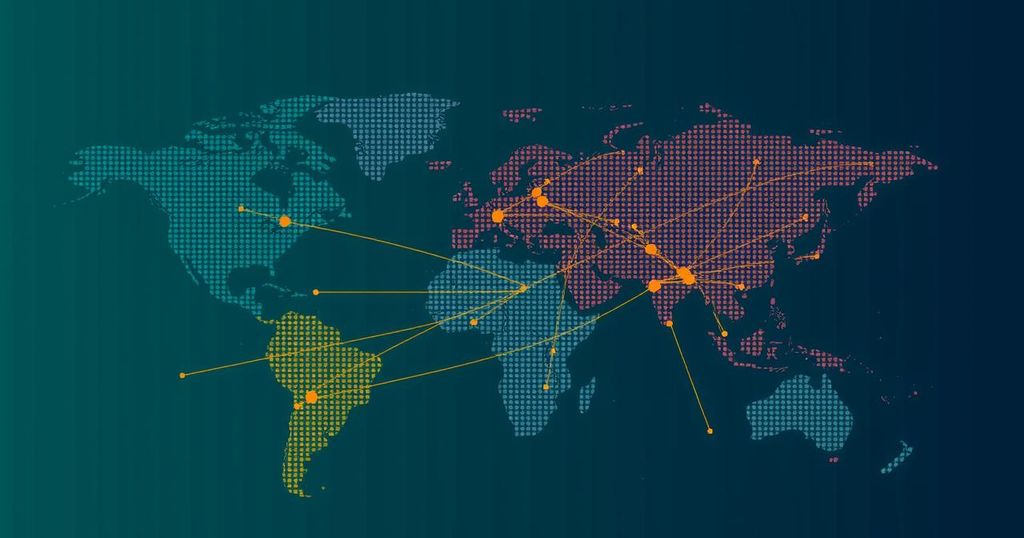Addressing the Complex Global Threats of Our Time

The Freeman Spogli Institute for International Studies at Stanford University convened a panel to discuss major global threats, including climate change, democracy under threat, China’s rise, the situation in Ukraine, and Middle Eastern conflicts. Key takeaways include the interconnectedness of global actors undermining the liberal order, the internal erosion of democracies, the resilience of Ukraine against Russian aggression, the perpetual challenge posed by China, and progress in addressing climate change. Experts call for strategic adaptation, support for democratic institutions, comprehensive foreign policy, and robust climate action.
The global landscape is currently characterized by numerous interrelated challenges, including climate change, the decline of democratic institutions, geopolitical tensions with China, ongoing conflict in Ukraine, and escalating violence in the Middle East. Scholars from Stanford University’s Freeman Spogli Institute for International Studies (FSI) recently convened to discuss these pressing issues during a panel titled “Global Threats Today: What’s At Stake and What We Can Do About It.” Moderated by FSI Director Michael McFaul, the panel included experts Marshall Burke, Didi Kuo, Amichai Magen, Oriana Skylar Mastro, and Steven Pifer, who provided insights into various facets of the current global threats. Amichai Magen emphasized the rise of illiberal actors united by an agenda to dismantle the liberal international order. He pointed to the involvement of Russia, Iran, and North Korea in destabilizing regions and highlighted the danger posed to countries such as Ukraine, Israel, and Taiwan. Magen stressed the importance of advocating for a strategic vision in the Middle East that promotes peace and a two-state solution for Israelis and Palestinians. Didi Kuo shifted focus to the internal threats facing democracies. She noted that, contrary to common belief, the erosion of democratic norms often arises from within, as leaders undermine electoral systems after attaining power. Kuo cited examples from countries like France and Brazil, where coalitions of pro-democracy forces have successfully resisted authoritarian trends, suggesting that adaptability is vital for democratic resilience. Steven Pifer addressed the narrative surrounding Ukraine’s military position, arguing against the notion that Ukraine is destined to lose the war against Russia. He stressed that while Russia has gained territory, the human cost has been staggering, and Ukraine remains resolute in its fight for survival. Pifer insisted upon the necessity of enhanced support for Ukrainian defenses to prevent further Russian aggression. Oriana Skylar Mastro discussed the long-term implications of China’s rise, cautioning that despite its economic challenges, China remains a formidable power with expansive influence across the globe. She underscored the need for a comprehensive U.S. approach to counter China’s growing diplomatic and military reach. Lastly, Marshall Burke highlighted progress on climate change, noting a 20% reduction in emissions since 2005, particularly in the United States under the current administration. Nevertheless, he acknowledged that significant challenges remain, and emphasized the urgent need for enhanced mitigation and adaptation strategies to confront the realities of global warming. In conclusion, the FSI panel illuminated the multifaceted threats confronting contemporary society, urging a collective response that embraces adaptability in democratic practices, strategic support for vulnerable nations, and sustained efforts toward climate mitigation.
The discussion around global threats undertaken by the scholars from the Freeman Spogli Institute offers a comprehensive overview of various contemporary challenges that intersect and amplify one another. The panel was organized as part of Stanford University’s Reunion and Homecoming weekend and reflects a growing concern about the trajectory of democracy, international security, and environmental sustainability. Each scholar provided a nuanced analysis based on empirical data and historical insight, illuminating how domestic and international pressures reshape the landscape of global governance and individual freedoms today.
The FSI scholars underscore the importance of recognizing and addressing overlapping global threats, including the internal decline of democratic practices, external geopolitical tensions, and the pressing implications of climate change. Their insights call for a proactive stance, advocating for reforms, sustained international cooperation, and a commitment to addressing the climate crisis. In navigating these challenges, a unified global effort and dedication to shared values of democracy and stability are paramount.
Original Source: fsi.stanford.edu








